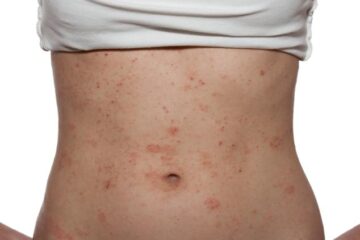Should You Be Worried About Iron in Water?

Do you suspect your water contains high levels of iron? Consuming water containing high iron levels can not only damage your home but also impact your health. Here are four common dangers of having excessive iron amounts in your water, along with how a water softener can correct the problem.
4 Dangers of Excessive Iron in Water
Health Issues
Iron is needed for carrying oxygen to the blood and other biological processes, but too much of it can affect your internal organs. This mineral is usually stored in your organs, such as in the pancreas, heart, and liver. When an excessive amount of iron is being stored, it can create several health issues, such as iron poisoning.
Some common symptoms of iron poisoning include those such as weakness, fatigue, abdominal pain, and joint pain. Furthermore, too much iron can result in diabetes and sexual problems. Even worse, high levels of iron can affect your heart or liver, causing these organs to fail.
Bad, Metallic Taste on Food and Beverages
Iron can give your food and beverages an unpleasant, metallic taste. Besides tasting metallic, it can discolor your food and drinks, making them look and taste bad. For example, fruits and veggies that are rinsed or cooked in water containing too much iron can look ugly and blackened.
Skin Problems
When your water contains a high amount of dissolved minerals, your skin can be affected. This can lead to damaged skin cells, which can result in wrinkles.
What’s more, iron in your water does a poor job of blending with soap, which can lead to problems when bathing and showering. This means that the residue from soap scum remains on your skin as well as in your shower and/or bathtub.
Even worse, this leads to clogged skin pores, causing the oils in the skin to accumulate, which can lead to acne, eczema, or other skin conditions. While using certain skin medications can be helpful, you still need to get rid of the iron so that your skin can permanently clear up.
Pipe Clogging
Another concern linked with high amounts of iron in water is that it can cause pipes to clog. Consider how an iron residue accumulation inside your pipes can lead to clogging. This can result in your sinks and toilets being clogged, along with a reduction in water pressure. When bacteria attach to iron, it creates a dark, slimy goo that builds up in the pipes, in addition to wherever there’s water in your home.
Ferrous vs. Ferric Iron
The first step is determining the type of iron that may be in your water: ferrous or ferric.
The fully dissolved form of iron, known as ferrous iron, can be identified in drinking water after pouring it into a glass and letting it sit for a few minutes. Although it looks clear at first, it changes in color to red or yellow. However, ferric iron, which is not dissolved, can be recognized as soon as your drinking water has been poured into a glass.
Other Considerations and Warnings
- Excessive amounts of iron in water are usually a result of underground iron pipes becoming corroded. It can also be from a well and the surrounding ground that’s become saturated.
- The EPA considers iron in your drinking water to be a secondary contaminant since iron typically has bacteria, which needs iron for survival. The standard for iron in water is up to 3 mg/L or 0.3 milligrams per liter of water.
- It takes only a tiny amount of iron to create a haven for bacteria to develop and grow. After these bacteria have invaded your body, you can become ill.
Contact Us
Don’t settle for contaminated drinking water. If you think that there’s iron in your water, contact us for an appointment and learn more about how we can remove excess minerals from your water. We can provide a quality analysis of your water and determine the type of iron that’s in it, besides the levels.



